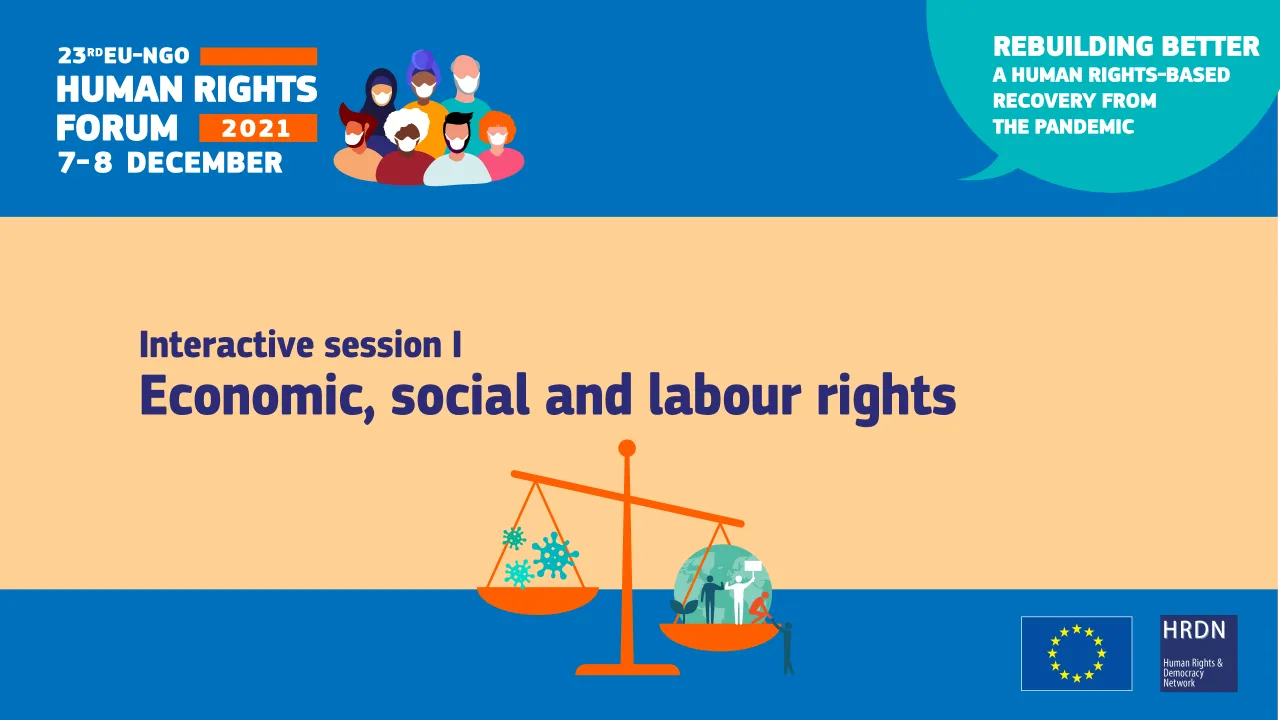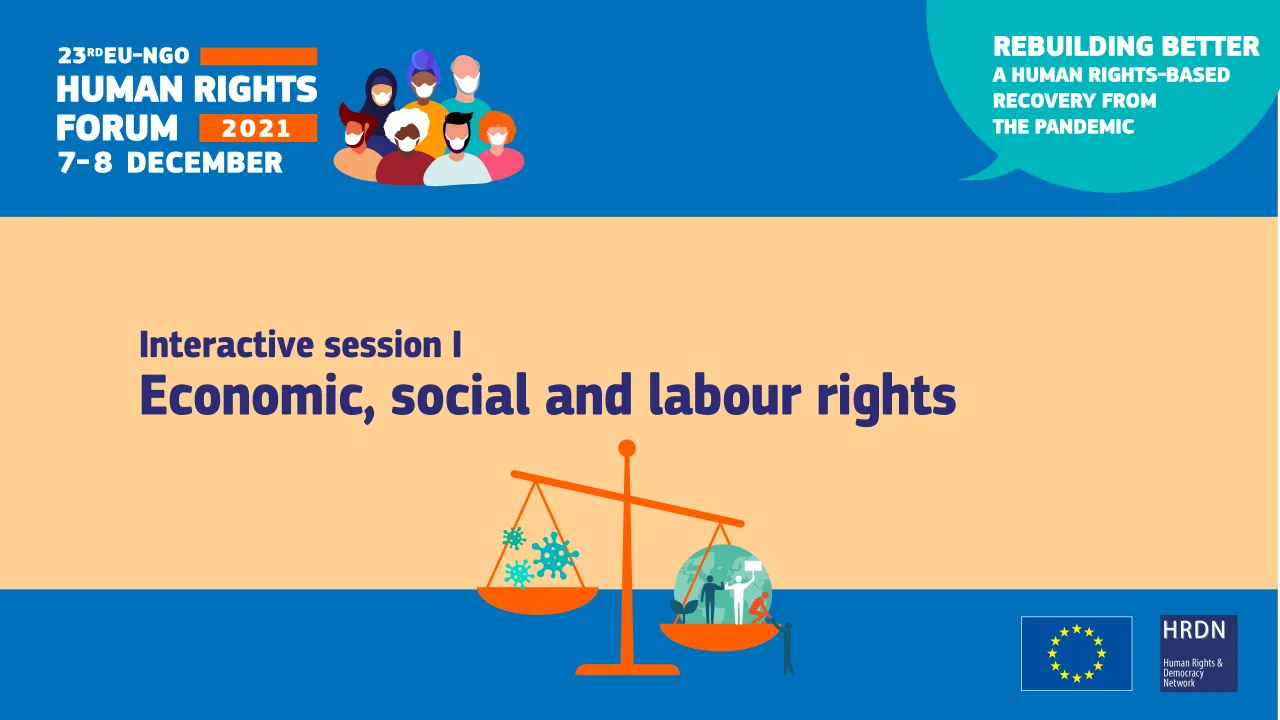

Interactive session II Economic, social and labour rights: Addressing burning inequalities and enhancing social protection - how to better promote and implement economic and social rights in the post-COVID recovery
Information
Social protection systems are key tools in preventing or alleviating poverty, vulnerability and social exclusion. By providing guarantees on access to essential healthcare and income security, governments can actively support human rights and address social and discrimination issues. However more than 4 billion people around the world remain entirely unprotected according to the ILO. In manufacturing industries, social protection schemes (particularly for cases of sickness, unemployment, maternity and disability) play a crucial role in ensuring decent work conditions, living wages and gender equality. The COVID-19 pandemic has revealed the crucial role of social protection nets as a crisis response tool but it also exacerbated the social protection gap between countries, as evidenced by the limited reach of the social protection nets organised in many countries. In June 2021, the ILO revealed that an estimated additional 108 million workers are now extremely or moderately poor. The session will focus on the socio-economic impacts of the pandemic, and on how social and economic rights can contribute to enhancing social protection and to reducing inequalities. As a scene-setter, the session will open with the broadcasting of a 12-minute film 'How to steal your workers future', a portrayal of the long-term devastation for garment workers and their families caused by wages and severance theft (i.e. the unpaid yet legally-owed payments to workers). The film will be followed by an exchange of views on the impact of COVID-19 on employment levels, livelihoods and wage payments, the role and responsibilities of all actors in strengthening social protection systems, and how novel collaborative financing and governance mechanisms could support their development.
Leading questions:
- How did the lack of adequate social protection exacerbate the impact of the COVID-19 crisis on factory workers’ livelihoods, in particular garment workers?
- A lack of access to social protection particularly impacts women. What does an adequate social protection scheme need to include to tackle this gender gap (e.g. cover informal labour, absorb some childcare costs, etc.)?
- How are social protection systems covering the unemployment and termination benefits developed and implemented in garment-producing countries? What are the obstacles to effective implementation?
- What is the role of civil society organisations in supporting the development of social protection systems?
- How can the EU support the development of social protection systems in garment-producing countries, including through its international partnerships and its trade policies?
- In high-risk countries for social security provision, how can businesses take adequate steps to mitigate risks and negative impacts in times of crisis? What questions should they be asking, and what prevention and mitigation actions can they take as part of their due diligence?
Useful links:
- Communication on the Global EU response to COVID-19https://eur-lex.europa.eu/legal-content/EN/TXT/PDF/?uri=CELEX:52020JC0011&from=EN
- International Labour Organization, World Social Protection Report 2020-22 https://www.ilo.org/global/about-the-ilo/newsroom/news/WCMS_817653/lang--en/index.htm https://www.ilo.org/wcmsp5/groups/public/@dgreports/@dcomm/@publ/documents/publication/wcms_817572.pdf
- Clean Clothes Campaignhttps://cleanclothes.org/campaigns/pay-your-workers
- International Dalit Solidarity Network, Guidance on caste in global supply chains https://idsn.org/portfolio-items/eti-guidance-caste-in-global-supply-chains/
Speakers





